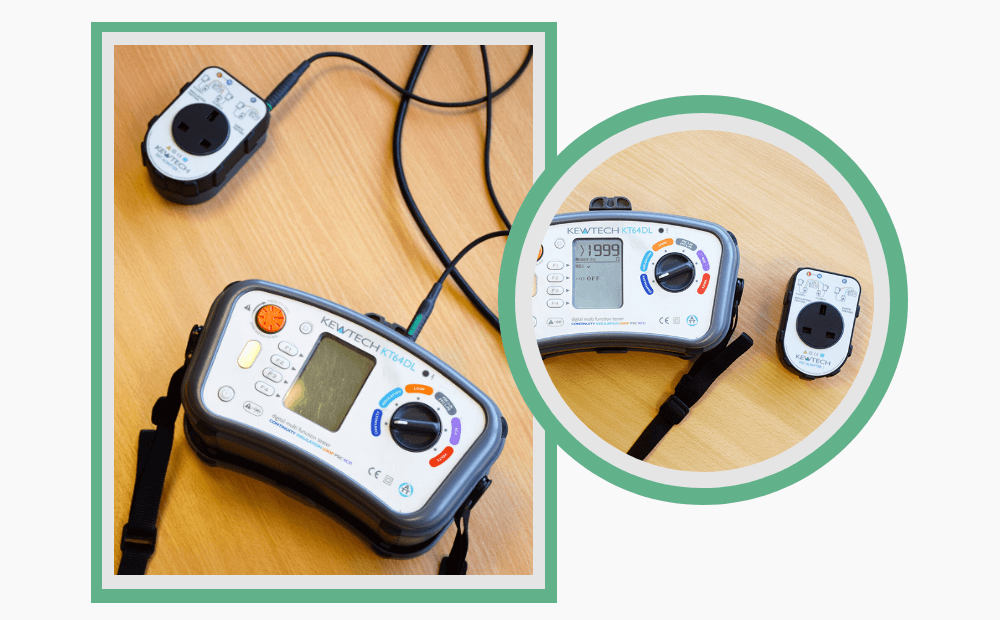Top 10 Tips To Assess Qualified Technicians In PAT in Lichfield
The competency of the person who is performing Portable Appliance Testing (PAT) is the key element that transforms a mechanical process into a legally defensible safety regime. The Electricity at Work Regulations (1989) of the UK do not require the establishment of a licensing scheme or a qualification for testers of PAT. Instead, Regulation 16 states that persons must possess the necessary "technical expertise or experience" to protect themselves from injuries and dangers. The principle of "competence" places the full responsibility on the duty-holder (employer) to select and appoint technicians who can demonstrate a combination of formal training, practical experience, and sound judgement. In the absence of a compulsory qualification creates a market with various levels of expertise for technicians and it is essential for employers to know how to effectively verify competence beyond simply having an accreditation. A qualified technician does not just perform tests but understands the fundamental principles behind electrical safety, and can discern results with precision and make well-informed pass/fail judgments that are based on the IET Code of Practice, and offer invaluable risk assessment insight.
1. The definitions of competence in the law under EAWR 1989. in Lichfield
Regulation 16 of Electricity at Work Regulations (1989) states that everyone must have the required skills to stay safe from injury or danger. The HSE defines competence as "the ability to complete the task in a safe and efficient manner without putting themselves at risk or others." It's a mix of three components that include understanding (theory) as well as experience (practical application) and understanding (the apparatus and system they test) and a well-organized working environment. A technician has to possess the three components to be deemed legally competent.
2. Qualifications that are formal are not equivalent to. demonstrable ability in Lichfield
Although there isn't a lawful requirement to obtain a specific certification, formal education provides the most evident proof of expertise. City & Guilds Qualification 2377 ("In Service Inspection and Test of Electrical Equipment") is recognized by industry. However, possession of this certificate does not automatically confer competence; it must be combined with practical expertise. Duty holders must take into consideration both relevant qualifications and proof of actual experience. A technician with no formal qualifications would need to prove their know-how and experience in order to be considered qualified.
3. City & Guilds 2377 Qualification – What is it?
City & Guilds is an Level 3 qualification. It tests a person's capacity to conduct tests, inspections as well as their understanding of the IET Code of Practice. It is available in two parts: 2377-77 (theory-based multiple-choice examination) and 2377-78 (practical assessment). The certification is complete and shows that both knowledge and skills were assessed independently. It is wise to verify the certification by asking for the certificate's number and then verifying its authenticity through the City & Guilds verification portal. Certificates can be faked.
4. The Necessity of Practical Hands-On Experiential Learning in Lichfield
Theoretical knowledge is useless without the practical ability to put it into practice. A technician who has extensive experience should be able to conduct tests on an array of devices and operate in diverse situations. This lets them spot subtle faults in appliances that an untrained person might miss. It also enables them to operate safely and effectively in complex settings, such as industrial plants or construction sites. To determine the experience of a technician, an employee can inquire about their years of work and what types of sites the test subject has worked on.
5. The knowledge of the IET Code of Practice For In-Service Inspection and Testing
The IET Code of Practice serves as the bible of PAT tests. A certified technician has to not only possess a code of practice, but also understand the contents in depth. It is important to understand the different classes of equipment, the sequence of visual checks and tests, how to use test instruments correctly and what results can be considered acceptable or not. It is crucial that they can refer and use this guidance in a correct manner.
6. Understanding and Calibration of Test Instruments
The technician needs to understand the importance of accurate test results dependent on the equipment used. They must know that their PAT tester needs to be regularly calibrated (typically annually) by a UKAS-accredited laboratory to ensure that its results are accurate. The device must have an up-to-date calibration certificate. They should also be able to properly use their device, conduct a daily check (e.g. an enumeration test) and interpret the results rather than simply recording numbers.
7. Ability to perform meaningful visual Inspections in Lichfield
Visual inspections can reveal 90% of the faults. A highly qualified technician places an enormous importance on this process and is meticulously examining plugs as well as cables, connectors and casings for wear, damage or indications of overheating. They understand how to correctly connect the plug, as well as the correct fuse ratings. A less competent tester may be rushed through this procedure or miss the entire process, depending solely on an electronic tester, which is a serious lapse in their duty.
8. Decision-making and judgment: Interpreting results and applying the Pass/Fail standards in Lichfield
The tester's electronic sensors provide readings while the technician gives the judgment. This ability to interpret and apply the IET Code of Practice limits for pass/fail and the specifications of the appliance proves proficiency. To illustrate, they should be able to determine whether a slight increase in resistance to insulation is considered acceptable and when a seemingly acceptable reading on earth continuity may be a sign of latent problems within a particular appliance. Qualified professionals have the ability to make informed decisions.
9. Concerns with Liability and Insurance in Lichfield
Although not required by law, a competent tech should hold Public Liability Insurance. This will protect the customer in the unlikely scenario that the technician's actions cause damage to property during testing. In addition, by hiring an expertly trained technician the person in charge strengthens their legal defense of "due diligence," showing they took all reasonable steps to appoint an appropriate person, which is essential when an electrical issue is later investigation is required.
10. Communication and documentation skills in Lichfield
A test process that does not have clear and accurate documentation is of no value. A qualified technician should produce clear, precise report and asset record that accurately identify each appliance and record the results of all tests. They must be able to clearly identify the result of the test, passing or failing. Technicians should be able to communicate to the owner of the unit any issues that were discovered, their risks, and necessary actions (i.e. repair or replacement). Communication is an essential element of the overall safety system. View the best compliance services in Lichfield for more advice.

Fire Extinguisher Servicing The Top 10 Tips For Fire Extinguisher Servicing in Lichfield
In the UK the choice of a provider of fire extinguisher service is more than just finding a person to conduct an annual check. A comprehensive provider offers many different services and is your one source of contact when it comes to all of your fire safety needs. They guarantee compliance, reduce administrative burdens, provide an all-encompassing approach to safety, and provide an comprehensive service. The services provided provide a clear indication of a business' expertise in its resources, as well as their willingness to become a partner in time instead of just being a contractor. Being aware of the complete range of services, from risk analysis, installation and ongoing maintenance to emergency support to end-oflife disposal allows you to choose a company that is both safe and efficient.
1. Routine Maintenance and Scheduled Services Routine Maintenance and Scheduled Service: This is a fundamental service that is strictly based on BS 5336-3. A full-service provider manages the scheduled intervals, which include periodic visual inspections, which are often guided by the customer, with assistance from the service provider. They also provide the annual, mandatory, basic maintenance for extinguishers as well as the extended service, also known as discharge test, for powder, water, and foam models, every five years, and the overhaul/pressure test as well as overhaul for CO2 extinguishers every 10 years. The company should plan the inspections in advance and give the necessary certifications for each.
2. The best providers don't just keep, they also advise and provide the right equipment. This service includes a site inspection to determine the type, size and rating of extinguishers required in light of the fire risk assessment, as well as the particular hazards present within the building (e.g. Class A, B C F electrical). They will then install the equipment to the standards of BS 5306-8, making sure that it is BSI Kitemarked, or an equivalent certification.
3. Fire Risk Assessment (FRA). Many major servicing companies have certified assessors who can conduct or review the legally-required Fire Risk Assessment. Although this is an independent procedure, having your extinguisher provider assist in completing the FRA ensures a fully integrated method where the equipment's provision directly aligns with the identified hazards. This creates a track for auditing from hazard recognition to control measures implementation.
4. Emergency Callouts and Reactive Services Equipment is at risk of being stolen, damaged or discharged, or even unintentionally released at any time. A reliable company will provide an emergency call-out in order to replace or repair the equipment. This ensures that your facility is unprotected, or out of the regulations. This includes the replacement of damaged or lost equipment.
5. Other Fire Equipment Servicing Your fire safety strategy does not have to be only limited to portable extinguishers. A full-service provider will also be able to maintain, certify and oversee the other equipment you have. This covers dry/wet risers as well as hose reel systems and fire alarms as well as emergency lighting and. This method simplifies the documentation and reduces costs.
6. Training and Education Services: Equipment can only be effective if users know how to utilize them. Many providers offer complementary training services, including fire extinguisher courses (often with live-fire simulators), fire warden training, and general fire safety awareness classes. It will empower your staff and improve overall safety.
7. Complete documentation and online portals: Robust record-keeping is an obligation of law. Leading companies offer high-quality documentation, not just printed certificates. They also provide comprehensive digital reports, asset registries, and online portals for customers that allow them to view their entire history of service. They can download certificates, submit issues, and make appointments at any time.
8. Disposal and Environmental Services Responsible disposal of extinguishers decommissioned under Duty of Care is a significant environmental and legal requirement. A full-service provider will handle this efficiently, utilizing certified waste carriers and offering Waste Transfer Notes as proof of proper, legal disposal. This will allow you to avoid fines for illegal disposal of pressurised vessel and other hazardous materials.
9. Planned Preventative Maintenance (PPM) and Asset Management Beyond the reactive calls, top providers offer proactive PPM contracts. The top providers manage your entire portfolio by tracking the due dates for all services across different equipment, scheduling visits on a regular basis, and providing an accurate maintenance schedule. They take care of any administrative burdens and are certain that you won't be late for a scheduled service.
10. Auditing and consulting for compliance Expert consultants can offer consultancy services for websites which are more complicated. This could include performing an assessment of the current fire protection plans in relation to the legal requirements. It could also involve giving advice on plans for remedial measures as well as providing a regular audit of compliance. Check out the recommended fire extinguisher maintenance in Lichfield for blog recommendations.

